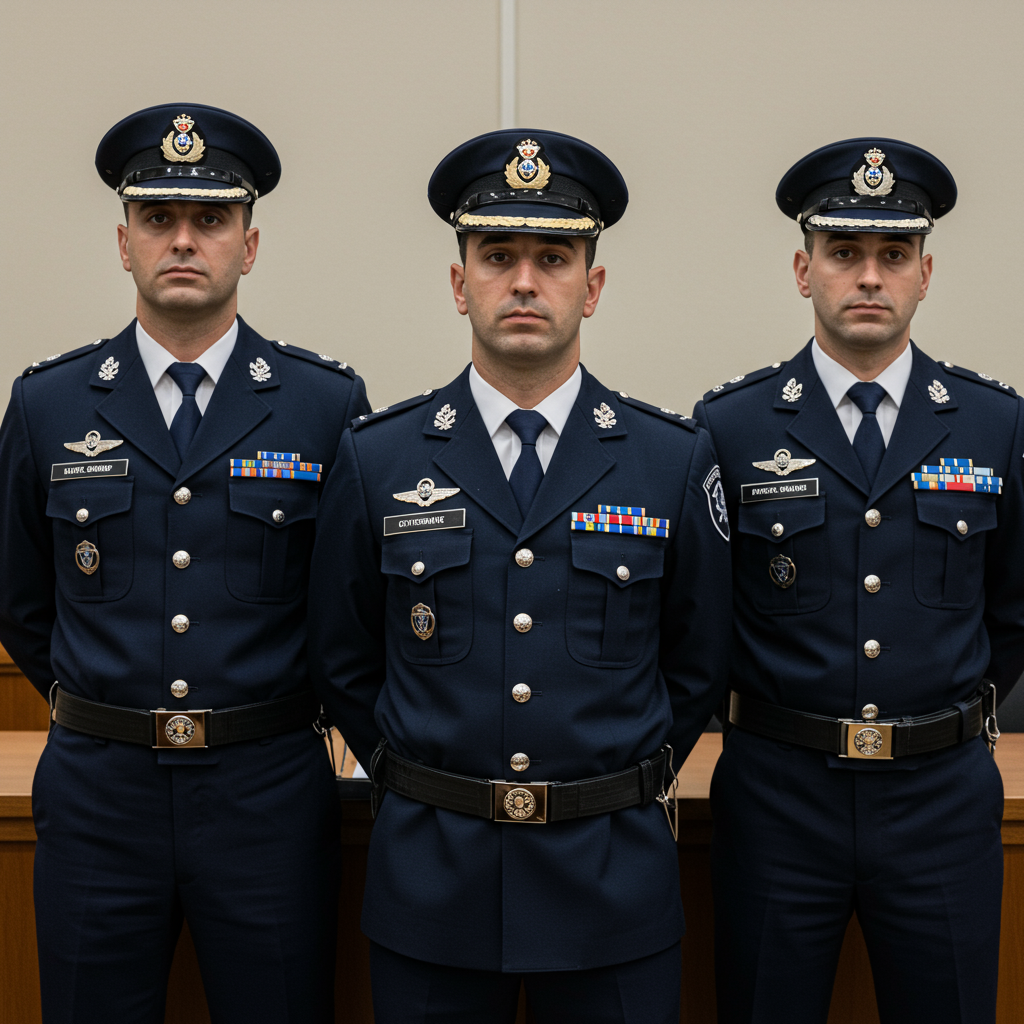In the heart of Rome, during the momentous Jubilee Year celebrations, thousands of young Ukrainian pilgrims offer a profound testament to unwavering faith and resilience. Their journey, often from the very front lines of conflict, embodies a powerful message: hope never disappoints. This compelling narrative, shared by Bishop Bryan Bayda, Chairman of the Ukrainian Commission of Youth of the Ukrainian Greek Catholic Church, highlights how spiritual strength can flourish even amidst unimaginable suffering.
The Pilgrimage of Profound Resilience
The gathering in Rome for the Jubilee of Hope is far more than a simple assembly; it is a powerful statement. Bishop Bryan Bayda, a seasoned participant in nine World Youth Days since 2002, emphasizes the unique gravity of this year’s event. As head of the Patriarchal Commission appointed by Patriarch Sviatoslav, he has diligently coordinated the arrival of over 30 groups of young people. Many of these courageous individuals hail from Ukraine’s most war-affected regions, carrying burdens invisible to the casual observer.
Their presence in Rome is not merely for sightseeing. Instead, these young pilgrims are serving as living witnesses to the world, demonstrating the profound depth of their faith and an enduring hope that transcends their immense suffering. This remarkable feat was supported by initiatives like “Tickets of Hope,” which successfully raised over 75,000 Canadian dollars. This crucial funding enabled 100 pilgrims from the direct war zones to undertake this transformative journey, underscoring the collective effort to bring light to their spiritual path.
Understanding Hope: A Divine Anchor
The concept of “hope that never disappoints” lies at the core of their experience. Bishop Bayda eloquently describes the Jubilee of Hope as a “golden opportunity” for these young people to deepen their encounter with Christ and discern a greater spiritual purpose. Echoing words attributed to Pope Leo XIV, he asserts that true hope, particularly Christian hope, possesses an inherent reliability.
Rev. Marion J. Miller, a spiritual leader, expands on this, describing hope not as a fleeting emotion or the absence of problems, but as the very “presence of God Himself.” She portrays hope as a guiding “beacon light” that enables individuals to look beyond current difficulties toward future possibilities. This divine hope delivers people from despair into a “confident, enduring hope,” providing strength amidst uncertainty. Miller powerfully underlines that “God’s hope does not disappoint!” This perspective resonates deeply with the Ukrainian pilgrims’ journey, where their hope is anchored not in worldly circumstances but in a higher power.
Beyond the Surface: Hidden Sacrifices and True Peace
While media images might portray joyful moments, Bishop Bayda offers a sobering reminder of the unseen sacrifices carried by many young Ukrainians. He explains that behind every smile lies a hidden burden. Some leave vulnerable grandparents with no other caregivers, facing uncertainty about what might happen at home in their absence. While their arrival in Rome might suggest all is well, the immense personal sacrifices made to be there often go unnoticed.
Central to Bishop Bayda’s message is the profound “peace of Christ.” Drawing from Gospel teachings and personal reflection, he speaks of a peace attainable even in the most painful circumstances. He points to Jesus’s most peaceful moments on the Cross, where true peace was found in aligning with the Father’s will. This spiritual peace, he suggests, is accessible even amid the chaos and devastation of war. Bishop Bayda himself has visited Ukraine four times in the past year, including areas near the front line. These pastoral visits, often accompanied by clergy from Ukrainian communities in Canada, aimed to strengthen ties and understand the grim realities on the ground. He witnessed “rehabilitation centres, mass graves, and places of unspeakable suffering,” yet also observed how “mercy and charity are alive” even in the darkest corners.
Cultivating an Active, Unwavering Hope
Pope Francis, in his book “‘Hope Never Disappoints’: Pilgrims Toward a Better World,” further defines Christian hope not as passive optimism but as a dynamic force requiring action. He describes hope as “the anchor and the sail” guiding towards a “more fraternal future,” rooted in the certainty that something good is coming. This perspective complements the active witness of the Ukrainian youth who, despite their trials, are actively working to build and manifest hope.
This enduring spirit of hope finds echoes in historical figures like Dr. Martin Luther King Jr., who famously stated, “We must accept finite disappointment, but never lose infinite hope.” His life, dedicated to fighting injustice despite constant opposition, serves as a powerful testament to perseverance. Like Dr. King, these young Ukrainian pilgrims embody the principle of holding onto an “infinite hope” even when confronted with “finite disappointment” on a massive scale. Their journey is a living answer to King’s poignant question: “What are you doing for others?” – they are witnessing for others, inspiring hope for a better future.
The Call to Discernment and Spiritual Strength
When asked about his message to young people, Bishop Bayda acknowledges the unique spiritual journey of each individual, shaped by age, experience, and context. Yet, he asserts a universal principle: “Seek the will of the Father.” He encourages them to discern daily what this means, emphasizing a call to sacrifice, prayer, and uniting their will with God’s.
In a poignant metaphor for resilience, Bishop Bayda states, “The enemy may destroy power stations in Ukraine with missiles, but the Holy Spirit cannot be destroyed.” He likens prayer to a “solar panel to the soul,” which draws eternal strength from the Spirit. This unwavering spiritual connection, he asserts, is the essence of “a hope that never disappoints.” It underscores that while physical structures may crumble, the inner spiritual life, fueled by prayer, remains an indestructible source of power and perseverance.
The Jubilee: A Call for Inner Conversion
Pope Francis consistently emphasizes that attending the Jubilee is more than being a tourist; it requires the mindset of a true “pilgrim.” Passing through the Holy Door, which marked the official commencement of the Holy Year, holds little meaning without an accompanying religious sensibility. The pontiff explains that the true significance of the Jubilee lies in engaging with “this Holy Door that you have inside you,” necessitating “conversion.” This implies a change in lifestyle or, at the very least, sincere repentance. Even if a complete transformation isn’t immediately achievable, Pope Francis assures that sincere repentance “changes the heart, slowly,” making it “more human, closer to the heart of the Lord,” and allowing the Holy Spirit to work its profound transformation. This inner journey mirrors the external pilgrimage of the Ukrainian youth, whose physical travel to Rome is inextricably linked to their deeper spiritual quest for peace and hope.
Frequently Asked Questions
What is the significance of the Ukrainian youth’s pilgrimage to Rome for the Jubilee?
The pilgrimage of thousands of young Ukrainians to Rome for the 2025 Jubilee of Hope is a profound act of spiritual witness and resilience. Despite enduring immense suffering from the war, their presence demonstrates an unwavering faith and an enduring hope that transcends their circumstances. Bishop Bryan Bayda highlights that they are not merely tourists but active witnesses to the world, sharing their deep spiritual strength and the peace of Christ even amidst conflict. This journey, partly funded by initiatives like “Tickets of Hope,” signifies a commitment to spiritual growth and unity during a time of extreme adversity.
How does the “Jubilee of Hope” relate to the pilgrims’ experiences and the concept of hope?
The “Jubilee of Hope” provides a powerful context for the Ukrainian pilgrims’ experiences, described by Bishop Bayda as a “golden opportunity” for youth to encounter Christ and deepen their spiritual calling. The theme “hope that never disappoints” is central, drawing from Pope Leo XIV and reinforced by Pope Francis, who defines Christian hope as an active force, not passive optimism. For these young people, the Jubilee is a period of reflection, renewal, and a testament to their belief in a divine hope that sustains them through war, contrasting the destruction of physical infrastructure with the indestructible power of the Holy Spirit.
How can individuals cultivate “hope that never disappoints” in their own lives, drawing from this narrative?
Cultivating “hope that never disappoints” involves seeking spiritual depth and actively engaging with one’s faith, even in challenging times. Bishop Bryan Bayda encourages individuals to “seek the will of the Father,” emphasizing discernment, sacrifice, and prayer. He metaphorically describes prayer as a “solar panel to the soul,” drawing strength from the Holy Spirit. This aligns with Pope Francis’s view of Christian hope as requiring action and a mindset rooted in the certainty of good to come. The narrative of the Ukrainian youth highlights that true peace and enduring hope can be found internally, through spiritual connection and resilience, even when external circumstances are dire.
In a world often overshadowed by conflict and despair, the journey of these young Ukrainian pilgrims shines as a beacon. Their powerful witness to “hope that never disappoints” offers a universal message of resilience, reminding us that even in the face of immense suffering, faith can provide an unshakeable foundation for peace and a future built on unwavering hope. Their pilgrimage to the Jubilee of Hope stands as a testament to the enduring power of the human spirit, profoundly guided by divine grace.



